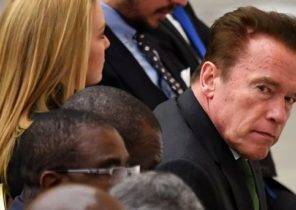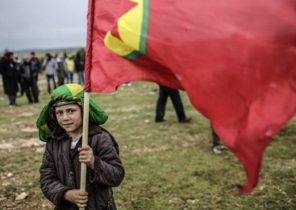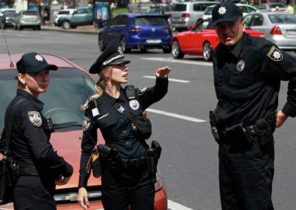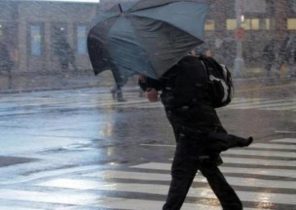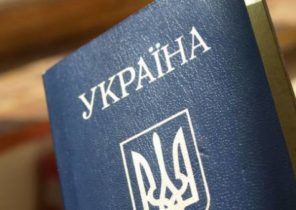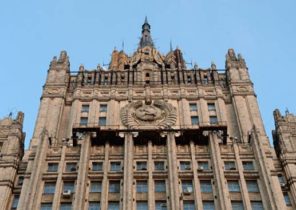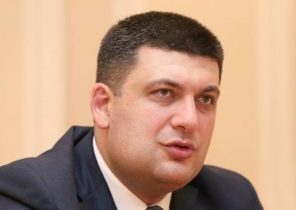
Every year in January (the anniversary of the “reunification” of Ukraine and Russia) the Russian media remind that “a Drunk Khrushchev gave the Crimea to Ukraine.” And now they are even adding a sigh of relief: “We finally fixed the crime stupid drunks”.
…In the memoirs of academician Boris Chertok, the Deputy of the famous chief designer Sergey Korolev on the management of space-rocket complexes, I read a few unexpected thing. Because Chertok speaks about it, combining their conclusions with specific facts from written it is impossible to dismiss. We are talking about that as a Khrushchev and Khrushchev’s economic reforms is decentralization, without creating regional economic councils — the Soviet Union never would have sent into space the first artificial Earth satellite, the first cosmonaut of the planet. Khrushchev, in the opinion of academician Chertok, for all his impulsiveness was able to make strategic decisions (though not always correct) and to take responsibility, and economic councils and territorial authorities control the economy of certain regions ‒ acted quickly and effectively when needed for a short time to create new samples of space technology. Sergei Korolev created a huge horizontal network that worked for the space program.
Khrushchev was replaced by Brezhnev, avoiding radical changes, he was not able to make strategic decisions and restored the Stalinist Ministerial chain of command economy. Created by the Queen, the system of industrial cooperative societies broke up, the development of the Soviet space program slowed down considerably, there was a pause for several years in manned flights (in the middle of which occurred the tragic death of Komarov on the “Soyuz-1”), and the lunar program actually flew upside down.
What am I? And the fact that Nikita Khrushchev, who accepted to represent almost illiterate, headstrong and drunken man, in many cases, proved to be the most sober among the Soviet leadership. It fully manifested at the end of 1953, after in September, he became the first Secretary of the CPSU Central Committee (that the then political landscape, however, meant only third place in the power team) and got down to business. Including for the Crimean problem, to which he had long observed.
Stalin the last fifteen years of his life almost never left Moscow, except for recreation on the black sea coast of Caucasus and in the meeting of the “big three” in Tehran and Berlin. He has visited at the beginning of 1945 in the Crimea, at the Yalta conference of leaders of three great powers ‒ but could see in the window of the armored limousine only “Potemkin villages” along the route. But Khrushchev was a man of restless, not the room type and all the problems preferred to solve on the spot, while dealing with “commoners”. Not surprisingly, shortly after receiving office, he went to the Crimea, where the Central Committee had received alarming signals.
On the Peninsula the first Secretary met crowds of Russian immigrants, who shouted: “We drove to the death!” “We were deceived!”, “We’re all doomed!”. Indeed, the situation on the Peninsula was terrible even by Soviet standards. By the time of the arrival of Khrushchev in Crimea was a total of 18 stores of meat, 8 dairy, 2 store selling fabrics, 9 shoes, 5 — building materials and 28 bookshops. And it is significantly more than polumilliona population! Completely stopped trade with vegetables and potatoes in the public sector. And no wonder: compared to 1940, the acreage in Crimea has decreased by 70 thousand hectares. Yield of all major crops area in 1953 had not reached pre-war levels. And that, in turn, was significantly inferior to the pre-revolutionary.
Judge for yourself. In 1913 the average grain harvest in the Crimea amounted to 11.2 kg/ha in 1940 to 10.7 C/ha, and in 1950-m and 3.9 t/ha. the Yield of the leading cereal — winter wheat, respectively amounted to 13.1 t/ha and 11.5 t/ha and 4.4 t/ha. that is, if the collective-state farm system (with its tractors, harvesters and state planning) have resulted in degradation of agriculture (not only in Crimea, but also throughout the Soviet Union), but not too significant the deportation of the Crimean indigenous peoples and the loss of the Crimean war, in conjunction with the settlement of the Peninsula by immigrants from the Central Russia, had devastating consequences. Here’s another group of numbers. In 1913, the Crimean farmers received an average of 5 t/ha of sunflower, in 1940 to 5.8 t/ha (with this culture was a little, but progress), and in 1950, the yield of sunflower in the Crimea, fell to 1.7 kg/ha Comments…
The famous Crimean vineyards, which were the basis for winemaking Peninsula, with rare exceptions, were laid before the revolution; after 1944 behind them looked very sloppy and clumsy, so their productivity does not exceed 10-12 kg/ha. meanwhile, before the war even on old vineyard yield of 50-60 C/ha. Livestock farms in most collective and state farms of the Crimea entered the winter 1953/54 year, only 37% provided fodder. On the whole Crimea, there were only 6 of greenhouses. Horticulture and gardening have not reached pre-war figures and was unable to meet the needs of even the local population, not to mention other regions. Therefore, in 1953, the region has not only completely failed all of the state plans, but was on the verge of mass starvation.
How Sunny and fertile Crimea came to such a life? Let me remind you that in may-June 1944, the Kremlin has made deportation from the Peninsula about 200 thousand Crimean Tatars and 50 thousand Greeks, Armenians and Bulgarians. In their houses were resettled farmers from the Central regions of Russia and (in not too large quantities ‒ a little more than 10 thousand people) from the Ukraine. On 25 June 1946 the Supreme Soviet of Russia adopted the law on the transformation of the Crimean Autonomous Republic in a regular scope as part of Russia.
But the Peninsula is the “common area” did not and could not become. Displaced from the forest and steppe zones of Russia could not get used to the climate and the specifics of farming in the Crimea. This applies not only rural areas but cities. For example, to engage in coastal fishing and to build structures of limestone newcomers could not. As a result, over the postwar decade in Feodosiya, where it was destroyed 40% of the housing Fund, managed centrally to build only one eight-apartment houses building. In Kerch has already built two such houses, one of which was given to the city children’s hospital. The leadership of Russia after arranged by Stalin in the late 1940’s a pogrom Republican management personnel only helplessly watched the situation on the Peninsula…
However, among the sea of chaos and decline there were oases of relative success and economic prosperity. For example, in the Kalinin collective farm, where, according to the “Crimean truth”, just 2 years 86 families who moved from Chernigov, raised running economy from scratch, and in other places settled in the already mentioned 10 thousand Ukrainians. Not by chance after visiting the Peninsula Khrushchev immediately flew to Kiev to organize emergency aid to the Crimea and resettlement to citizens of the USSR of the steppe regions ‒ those “who love gardens, corn”…
The head of the Republican party Alexey Kirichenko resisted: he did not want to take “under his wing” depressed region. Then Khrushchev took it with him to Moscow; report of the first Secretary about the situation in Crimea, Crimean experience, supported by numerous documents and expressive description of the disaster, was the result of the fact that the Kremlin has decided is another way of salvation other than immediate transfer of Crimea to the Ukrainian SSR, there is (theoretically, however, such an option existed to return to the Peninsula deported, but that was for obvious reasons an absolute taboo).
In other words, the initiative to transfer Crimea to the Ukrainian SSR really belonged to Khrushchev, but the relevant decision did not belong to him. The first person in the USSR at that time was the Chairman of the Council of Ministers, Georgy Malenkov, who chaired the meeting of the Presidium of the CPSU Central Committee, where that decision was taken. Next in the hierarchy were loyal Stalinists Vyacheslav Molotov, first Deputy Chairman of the Council of Ministers. Khrushchev, as already mentioned, was in the Kremlin, only the third. Decorated same solution that was in compliance with all the norms of Soviet bureaucracy: first, in a decree of the Presidium of the USSR Supreme Council signed by Kliment Voroshilov, and then the corresponding USSR law of 26 April 1954:
“The Supreme Council of the USSR decrees:
1. To approve the Decree of the Presidium of the USSR Supreme Soviet of 19 February 1954 on the transfer of the Crimean region from the RSFSR to the Ukrainian Soviet Socialist Republic.
2. To amend the articles 22 and 23 of the Constitution of the USSR.”
Positive results were not long in coming. Will result only one fact: in 1958 the volume of housing stock on the Peninsula, almost completely destroyed by war and deportation of indigenous peoples, had exceeded pre-war.. Therefore, the transfer of Crimea to Ukraine is one of the most sober and rational initiatives Nikita Khrushchev, then-if you evaluate the events from the point of view of vital interests of ordinary Crimeans. Interestingly, some of the time most of the Peninsula’s population were Ukrainians, so I started to leave Newspapers in the Ukrainian language and to open a Ukrainian school, but the Kremlin has caught on and began settling the fertile land retirees (military, KGB man, partnomenklatury) and their families… And in addition to Khrushchev, someone from the then intellectuals (the relevant documents are still classified, so it’s unknown exactly who) planted the idea of the “expanded construction of communism”, one part of which is to “achieve the complete unity of the Nations”, in this Russian language will become the “common language of international communication and cooperation of all the peoples of the USSR”. Well, Khrushchev sincerely wanted to improve the lives of ordinary people, but this time chose to achieve his goal worthless methods.
According to the memoirs of academician Chertok, Khrushchev, has become the first person in the Soviet Union, initiated in 1959 construction at Yevpatoria control Center space objects. So thanks to the “drunken Nikita” Crimea has taken a worthy place in the history of space exploration…
